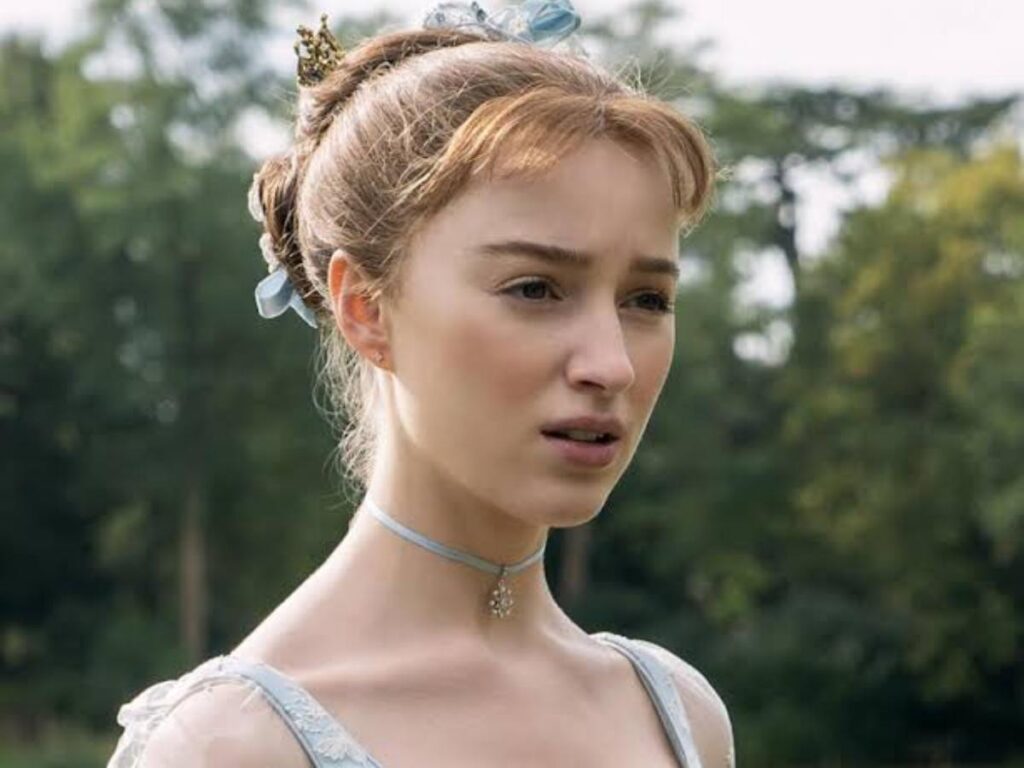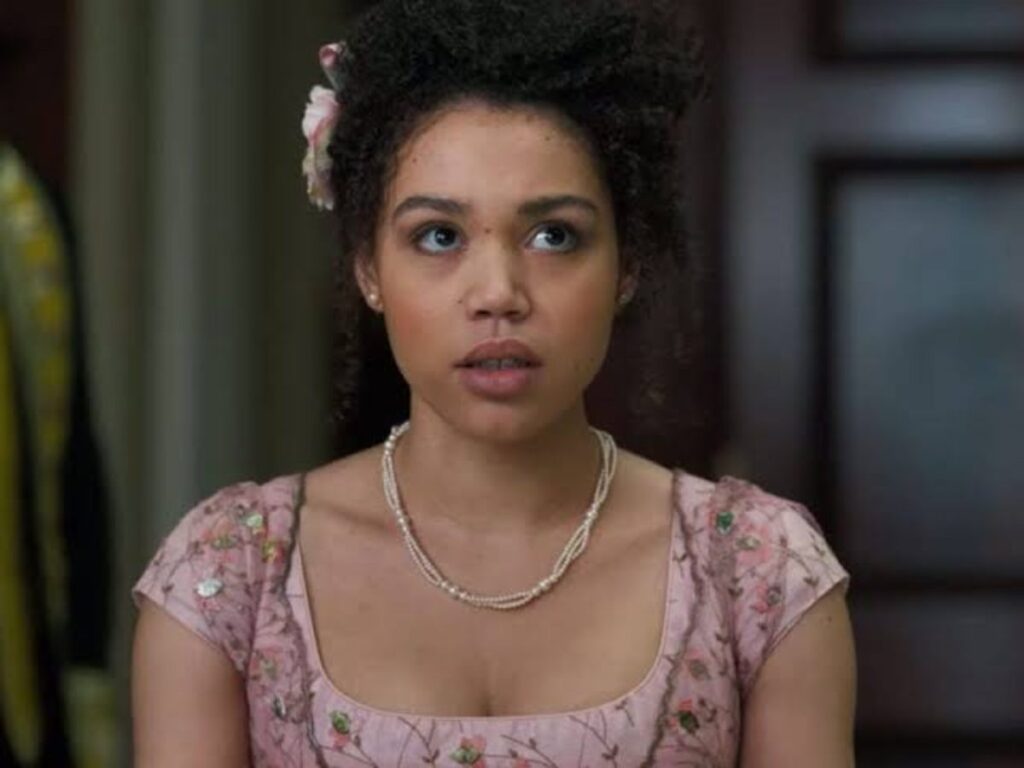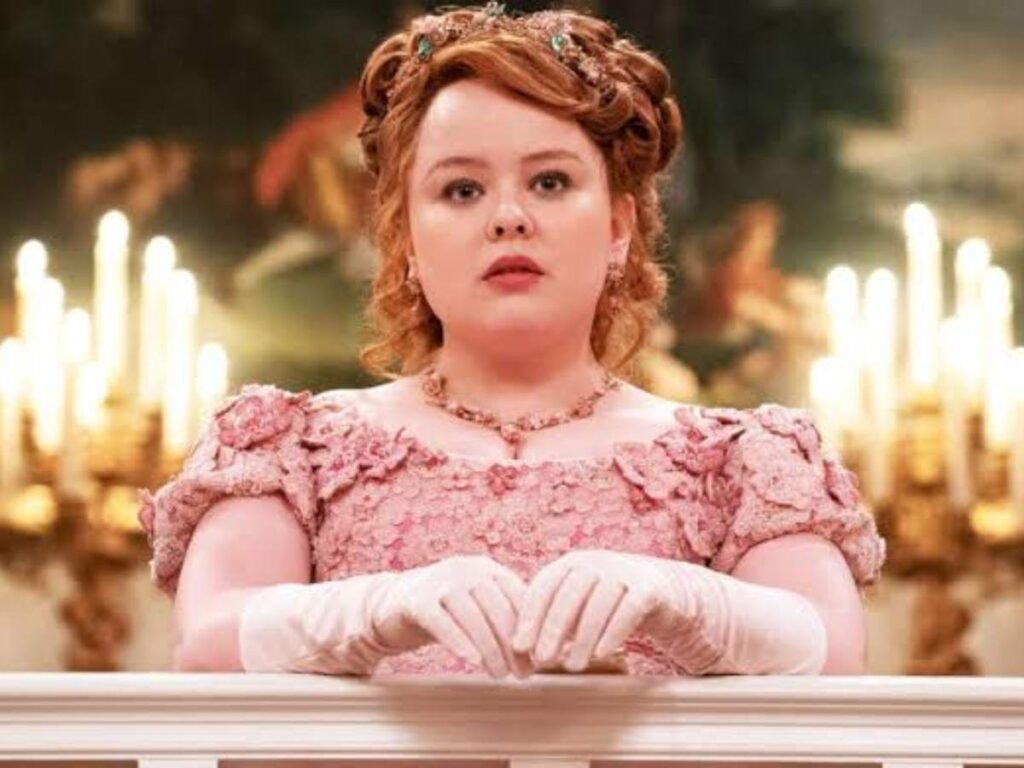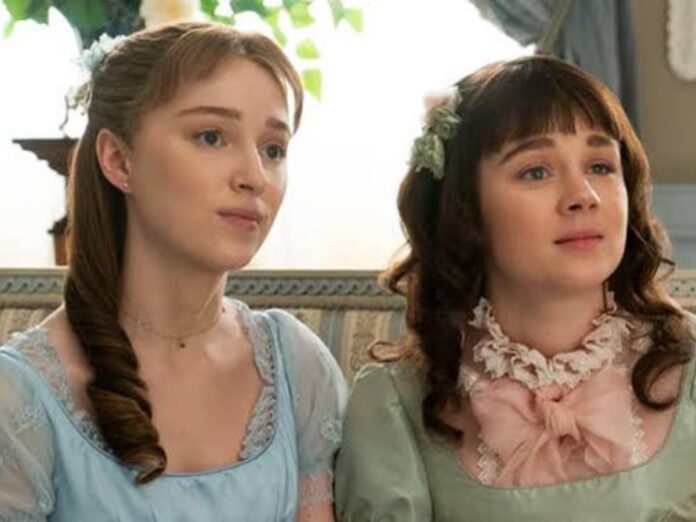Shonda Rhimes’ juggernaut period drama, ‘Bridgerton,’ has captivated audiences with its opulent sets, glittering costumes, and steamy love stories. However, beneath the romance lies a more complex social commentary. The series doesn’t shy away from portraying the constraints of a patriarchal world, yet its female characters find clever and courageous ways to navigate this complex web of rules.
Additionally, The lives of the show’s strong female characters are a paradox navigating a deeply patriarchal society while yearning for power, agency, and yes, even love. So, let’s delve into how the show tackles themes of feminism through the captivating stories of its heroines.
Related: Top 10 Period-Drama TV Shows Like ‘Bridgerton’
The Women Of ‘Bridgerton’ Fight To Choose Their Paths Despite The Patriarchal Society

The women of ‘Bridgerton’ exist in a world where their value is based on marriage and motherhood. Daphne Bridgerton, the eldest daughter in her family, faces immense pressure to secure a good match during her debut season. Yet, Daphne isn’t just a pawn in the marriage market. She possesses a sharp wit and a quiet defiance.
We see this in her initial resistance to Simon Basset, the Duke of Hastings, and her later negotiations for a more equitable marriage contract. Similarly, Eloise Bridgerton, Daphne’s younger sister, dreams of a life beyond societal constraints. She questions the rigid gender roles and longs for intellectual pursuits.
Eloise embodies a different kind of rebellion. Unlike Daphne, who finds a measure of power within the marriage market, Eloise rejects the limitations placed upon women. Additionally, her hunger for knowledge and intellectual pursuits despite those areas being deemed unfeminine by the standards of the time. Her frustration with societal expectations often lands her in hot water, but her defiance reflects a yearning for a world where women can have minds of their own.
Kate Sharma, on the other hand, brings a different perspective. As her relationship with Anthony progresses, Kate challenges his perception of women, demanding respect and a partnership on her own terms. These characters remind us that even amidst societal expectations, women like Daphne, Kate, and Eloise carve out spaces for themselves, using their wit, charm, and intelligence.
In case you missed it: “It Just Felt Like The Biggest F*** You”: Nicola Coughlan Chose To Be ‘Very Nak**’ On ‘Bridgerton Season 3’ Because Of Body Shamers
Marriage In ‘Bridgerton’ Correlates To Independence For The Young Women

The series doesn’t shy away from portraying the complexities of love and desire within a patriarchal structure. Women are expected to be submissive, yet they crave passionate connections. Daphne’s initial attraction to the Duke is laced with a yearning for both love and independence. The show also explores female sexuality in a way that is both titillating and thought-provoking.
Marina Thompson, a young woman ostracized by society for her premarital transgressions, represents the harsh consequences women face for defying societal norms. Additionally, Marina’s story also showcases her strength and resilience. She refuses to be a victim, taking charge of her own destiny even in the face of adversity.
Additionally, the series may be a period drama, but its themes resonate with audiences today. The women of ‘Bridgerton’ remind us that the fight for equality is a constant dance. While the show doesn’t offer easy answers, the happily-ever-after many characters seek often comes at a cost.
The Featherington Women Showcase The Survival And Social Climbing In A Ruthless Game

The Featherington family presents another layer of complexity. Unlike the Bridgertons, who are secure in their social standing, the Featheringtons are constantly on the brink of financial ruin. The family’s matriarch, Portia Featherington, exemplifies the desperation that women can face within a patriarchal system. Additionally, throughout the series, she is seen handling everything despite not being recognized for any of it.
Portia’s primary concern is securing advantageous marriages for her daughters, Penelope and Prudence. She employs manipulative tactics and social climbing strategies in a ruthless game to ensure her family’s survival. While her actions can be ruthless, they are driven by a fierce love for her daughters and a desire to protect them from a harsh reality. Penelope Featherington, often overshadowed by her flamboyant sisters, emerges as a surprising voice of reason and wit.
She observes the high society drama with a critical eye, confiding in her anonymous gossip column persona, Lady Whistledown. Just like Eloise, Penelope finds herself battling the ideas bestowed upon women at that period. Through her writing, Penelope gains a measure of power and agency that she wouldn’t have as a mere debutante. While societal expectations limit her options, Penelope uses her intelligence and her unique position as Lady Whistledown to carve out a space for herself.
Her story highlights the various ways women can resist limitations and find their voices, even within a restrictive social order in the show. ‘Bridgerton’s portrayal of women isn’t a fairytale. The characters grapple with societal constraints, but they also demonstrate courage, wit, and a determination to shape their destinies within the confines of their world. The series offers a nuanced exploration of feminism, reminding us that the fight for agency and equality can take many forms.
You might like to read:





